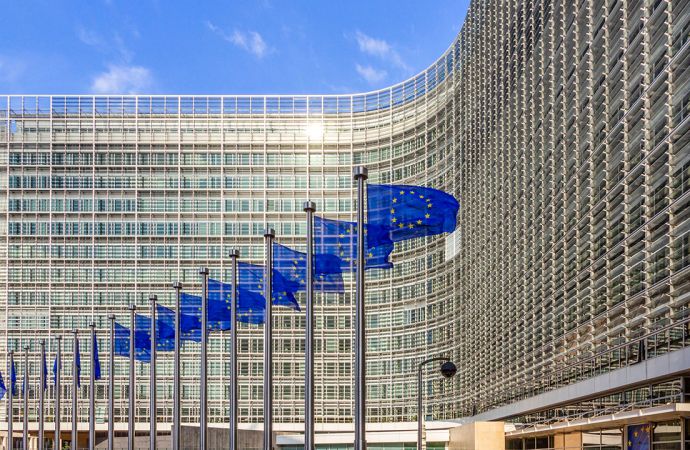A panel advising the French government has recommended to introduce a tax on CO2 emissions. This comes as EU presidency holding Sweden, which has a carbon tax on fuel and diesel already in place and also recently issued an HFC tax proposal, is expected to push for its plan for an EU-wide carbon tax.

A panel advising the French government last week recommended that France introduces a tax on CO2 emissions by 2010, as a necessary measure towards achieving its target of slashing its greenhouse gas emissions by four by 2050. The report produced by the panel is expected to provide the basis for legislation.
Following the same line of argumentation as that of Sweden advocating for a potential EU wide carbon tax, the French government is arguing that emissions trading is not a suitable instrument for reducing emissions from all sources, as it covers only 38% of the country's CO2 emissions.
Details of the CO2 tax proposal
Under the ‘Rocard proposal’, named after Former Socialist Prime Minister Michel Rocard who chairs the panel, the tax will affect all sectors that are not part of existing emissions trading programs. France would bill €32 for every ton of CO2 emitted in 2010 and lift the levy progressively to €100 per ton by 2030. This is estimated to add between 7 and 8 cents to the cost of a litre of petrol and raise heating and cooking gas prices by about 15%. The tax, divided roughly equally between households and businesses, would raise around €8-9 billion for the state budget.
To counter any concerns over income distribution distortions, the carbon tax contribution “will be strictly offset by a cut in other contributions, so that the purchasing power of households and the competitiveness of companies will be ensured," Environment Minister Jean-Louis Borloo and Lagarde have stated.
The context of the Swedish EU presidency
The French government initiated discussions on the introduction of a carbon tax, as it anticipated support for Sweden's plans to make the implementation of such a scheme at the EU level the priority of its EU presidency. In this context, on 10 June, French Environment and Finance Ministers Jean-Louis Borloo and Christine Lagarde started discussions on the tax by presenting a white paper for public consultation.
Sweden, which now holds the 6-month rotating EU presidency since the 1st of July, has made clear that it aims to push for an EU-wide tax on CO2 during its term, as it argues that the EU Emissions Trading Scheme (ETS) – the EU’s current climate instrument – does not cover 60% of the bloc’s emissions. "We now need to initiate discussions on how economic instruments can best be utilised in climate policy. I believe tools such as a carbon tax and emissions trading, if designed well, can play a key role in addressing climate problems," Swedish Prime Minister Fredrik Reinfeldt said in Brussels on 9 June, outlining his country's priorities for the EU presidency.
Sweden has already in place a carbon tax on fuel and diesel, a scheme that it considers a success and hopes to relay to the rest of the EU, while more recently it issued a proposal on domestically introducing an HFC tax, set initially at a level corresponding to the reduced CO2 levied on industry not covered by the EU emissions trading scheme. The proposed HFC tax is expected to decrease emissions by around 0.1 million tonnes of CO2 equivalents by 2020, while a proposed premium to be paid when HFCs are delivered for destruction will contribute to further reductions.
Future discussions and background
The level of the French carbon tax will be one of the main points of discussions, while with regards to the timeframe, former Socialist Prime Minister Michel Rocard, who chairs the panel has expressed his uncertainty over whether the scheme would in fact be ready in 2010.
At the EU level, the introduction of a uniform carbon tax has been attempted several times since the early 1990’s, such attempts did not realised for fear of Member States - including France - handing over national sovereignty and competence on taxation to the EU. As a result, the EU’s flagship climate instrument has instead been the EU ETS, according to which several carbon intensive industries are required to buy and sell permits for the release of CO2 into the atmosphere.
Following the same line of argumentation as that of Sweden advocating for a potential EU wide carbon tax, the French government is arguing that emissions trading is not a suitable instrument for reducing emissions from all sources, as it covers only 38% of the country's CO2 emissions.
Details of the CO2 tax proposal
Under the ‘Rocard proposal’, named after Former Socialist Prime Minister Michel Rocard who chairs the panel, the tax will affect all sectors that are not part of existing emissions trading programs. France would bill €32 for every ton of CO2 emitted in 2010 and lift the levy progressively to €100 per ton by 2030. This is estimated to add between 7 and 8 cents to the cost of a litre of petrol and raise heating and cooking gas prices by about 15%. The tax, divided roughly equally between households and businesses, would raise around €8-9 billion for the state budget.
To counter any concerns over income distribution distortions, the carbon tax contribution “will be strictly offset by a cut in other contributions, so that the purchasing power of households and the competitiveness of companies will be ensured," Environment Minister Jean-Louis Borloo and Lagarde have stated.
The context of the Swedish EU presidency
The French government initiated discussions on the introduction of a carbon tax, as it anticipated support for Sweden's plans to make the implementation of such a scheme at the EU level the priority of its EU presidency. In this context, on 10 June, French Environment and Finance Ministers Jean-Louis Borloo and Christine Lagarde started discussions on the tax by presenting a white paper for public consultation.
Sweden, which now holds the 6-month rotating EU presidency since the 1st of July, has made clear that it aims to push for an EU-wide tax on CO2 during its term, as it argues that the EU Emissions Trading Scheme (ETS) – the EU’s current climate instrument – does not cover 60% of the bloc’s emissions. "We now need to initiate discussions on how economic instruments can best be utilised in climate policy. I believe tools such as a carbon tax and emissions trading, if designed well, can play a key role in addressing climate problems," Swedish Prime Minister Fredrik Reinfeldt said in Brussels on 9 June, outlining his country's priorities for the EU presidency.
Sweden has already in place a carbon tax on fuel and diesel, a scheme that it considers a success and hopes to relay to the rest of the EU, while more recently it issued a proposal on domestically introducing an HFC tax, set initially at a level corresponding to the reduced CO2 levied on industry not covered by the EU emissions trading scheme. The proposed HFC tax is expected to decrease emissions by around 0.1 million tonnes of CO2 equivalents by 2020, while a proposed premium to be paid when HFCs are delivered for destruction will contribute to further reductions.
Future discussions and background
The level of the French carbon tax will be one of the main points of discussions, while with regards to the timeframe, former Socialist Prime Minister Michel Rocard, who chairs the panel has expressed his uncertainty over whether the scheme would in fact be ready in 2010.
At the EU level, the introduction of a uniform carbon tax has been attempted several times since the early 1990’s, such attempts did not realised for fear of Member States - including France - handing over national sovereignty and competence on taxation to the EU. As a result, the EU’s flagship climate instrument has instead been the EU ETS, according to which several carbon intensive industries are required to buy and sell permits for the release of CO2 into the atmosphere.
MORE INFORMATION
Related stories








